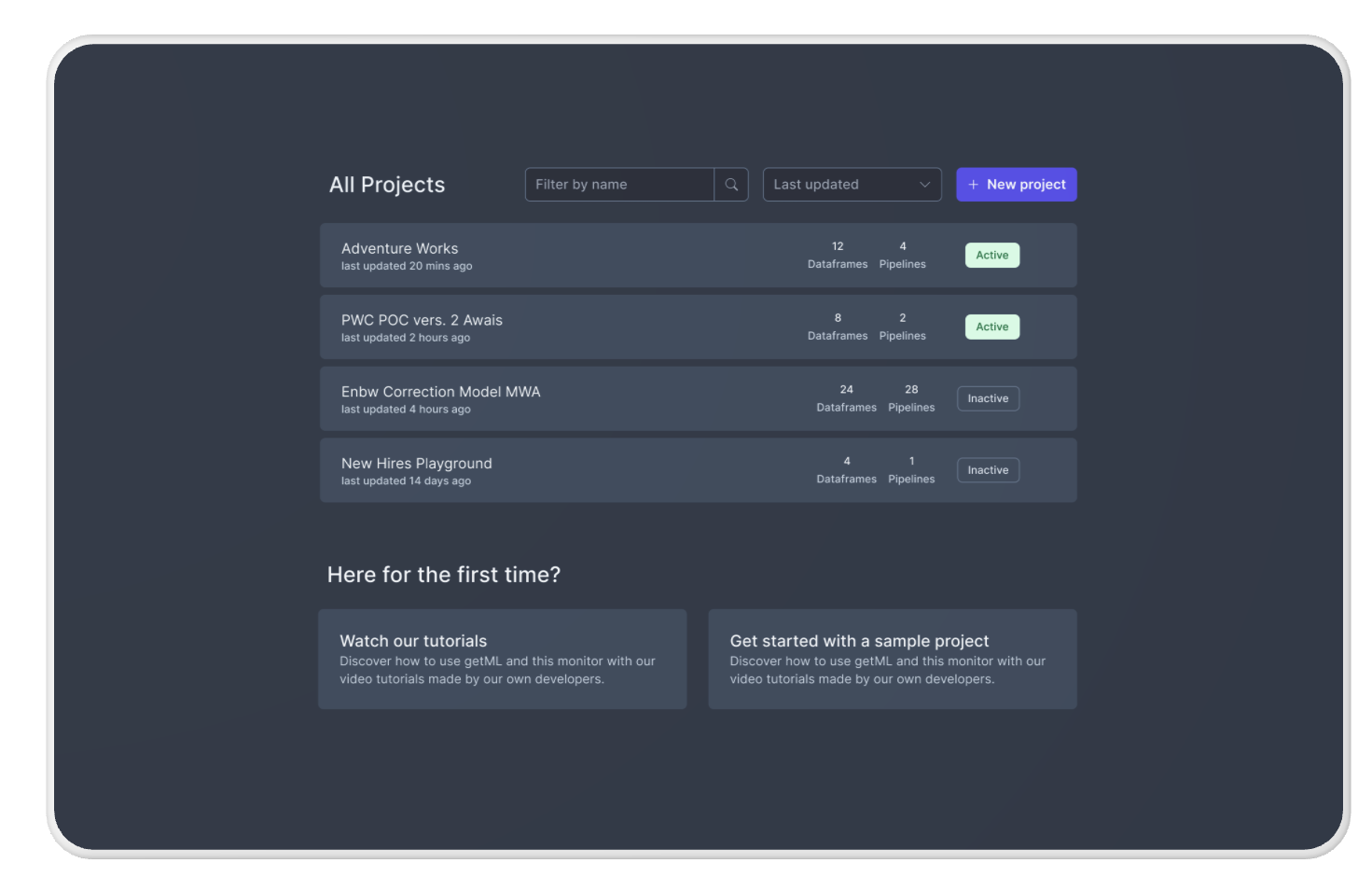The first ML framework
for relational learning.
Why getML?
Machine Learning models need features as an input. But building features by hand is an expensive process. Data scientists and experts spend up to 90% of their time on tasks related to feature engineering. We at getML build general-purpose algorithms for data scientists that automate feature engineering on any kind of relational data.
Billions of features with ~20 lines of Python
.svg)
Benefits of getML for feature learning
Feature learning boosts your productivity
Feature learning automates manual feature engineering through supervised learning. This is preferable to writing and maintaining hundreds of SQL, pandas or R/data.table scripts for feature engineering. getML's algorithms allow data scientists to build end-to-end prediction pipelines in days instead of months.
Algorithms that discover domain specific patterns
Manual feature engineering is an error-prone, repetitive process that requires countless hours of meetings to obtain domain knowledge from experts. Using feature learning, data scientists let algorithms automatically learn all the relevant features logic straight from relational data.
Great features lead to high ML model accuracy
Improving your model performance starts with finding better features. Feature learning helps you avoid the negative impact of unknown unknowns or common time constraints in the model building phase. getML helps data scientists to deliver the most accurate prediction models, faster.
What is getML?
All you need to build
end-to-end ML pipelines.
getML is a high-performance machine learning framework to build regression and prediction models on any kind of relational data. It comes with an easy-to-use python API that allows to build end-to-end ML pipelines on terabytes of input data.
Blazing Fast C++ Engine

getML Interface

Python API




How feature learning works
To find the best set of aggregation functions and conditions, getML’s supervised learning algorithms perform an iterative, tree-based search inside relational data. This allows for the automatic generation of complex features for a given target variable on a scale and accuracy that no manual or brute-force approach can match.

It takes less than 30 seconds to get started.
Beating the state-of-the-art in Relational Learning
getML outperforms modern libraries and academic literature in terms of speed and accuracy.
.svg)